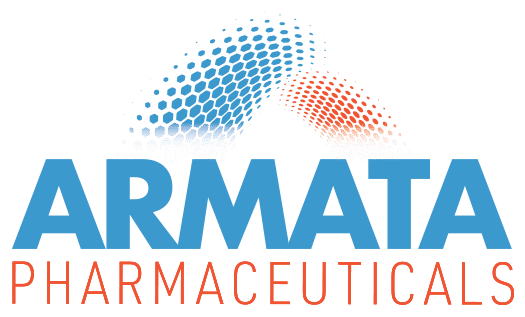Armata Pharmaceuticals

🇺🇸United States
- Country
- 🇺🇸United States
- Ownership
- Public, Subsidiary
- Established
- 2005-01-01
- Employees
- 66
- Market Cap
- $87M
- Website
- http://www.armatapharma.com
- Introduction
Armata Pharmaceuticals, Inc. operates as a clinical-stage biotechnology company, which focuses on the development of bacteriophage therapeutics for the treatment of drug-resistant bacterial infections. The company was founded in 1989 and is headquartered in Los Angeles, CA.
Leap Therapeutics Halves Workforce and Refocuses Cancer Drug Development Amid Market Challenges
• Leap Therapeutics has announced a significant restructuring, reducing its workforce by approximately 50% and narrowing the development focus of its lead cancer drug candidate in response to challenging market conditions.
• The strategic pivot aims to extend the company's cash runway while concentrating resources on the most promising clinical applications of its lead oncology asset, potentially improving its chances for regulatory success.
• This move follows similar restructuring trends across the biotech sector, with companies like Arcturus, NGM Bio, and Erasca all recently announcing staff reductions and pipeline reprioritizations to navigate the difficult funding environment.
Armata's Bacteriophage Therapy Shows Promising Results in Treating Staphylococcus aureus Bacteremia
• Armata Pharmaceuticals' Phase 1b/2a diSArm trial demonstrated that AP-SA02, a novel intravenous bacteriophage therapy, met all primary endpoints for safety, tolerability, and clinical response in complicated Staphylococcus aureus bacteremia.
• The bacteriophage therapy significantly improved clinical outcomes compared to best available antibiotic therapy alone, with 100% of AP-SA02-treated patients responding at end of study versus 75% in the placebo group (p=0.020).
• AP-SA02 was well-tolerated with no serious adverse events related to the study drug, showing efficacy against both methicillin-sensitive and methicillin-resistant S. aureus infections, marking a breakthrough in phage therapy for systemic bacterial infections.
Canada Expands Access to Rare Disease Medications Through Provincial Agreements
• The Government of Canada has signed bilateral agreements with Yukon and Nova Scotia, investing over $8.5 million and $39 million respectively over three years to improve access to drugs for rare diseases.
• The agreements will provide funding for several specialized medications including Yescarta, a CAR T-cell therapy for B-cell lymphomas, and five additional drugs in Nova Scotia for conditions including mycosis fungoides and von Hippel-Lindau disease.
• These initiatives are part of Canada's National Strategy for Drugs for Rare Diseases, which aims to help the one in 12 Canadians living with rare diseases access treatments that can cost between $100,000 and $4 million annually.
Non-Cystic Fibrosis Bronchiectasis Market Expected to Reach USD 7.5 Billion by 2035, Driven by Novel Therapies
• The Non-Cystic Fibrosis Bronchiectasis (NCFB) market is projected to grow from USD 1.7 billion in 2024 to USD 7.5 billion by 2035, representing a robust CAGR of 14.62%.
• Advancements in diagnostic technologies, including high-resolution computed tomography, molecular tests, and AI-based imaging, are significantly improving early detection and treatment planning for NCFB patients.
• Several promising therapies are in late-stage development, including Insmed's brensocatib, which recently had its NDA accepted by the FDA after showing significant reduction in pulmonary exacerbations in Phase 3 trials.
CAR T-cell Therapy Pipeline Surges with 180+ Companies Advancing Novel Cancer Treatments
• The CAR T-cell therapy pipeline has experienced significant growth, with over 180 companies actively developing more than 200 innovative cell therapy candidates across various stages of clinical development.
• Recent breakthroughs include Hemogenyx's first human administration of HG-CT-1 for acute myeloid leukemia and NICE's approval of lisocabtagene maraleucel for large B-cell lymphoma treatment.
• Strategic industry developments are accelerating progress, with companies like CARsgen Therapeutics forming alliances to advance allogeneic CAR-T products and multiple firms reporting successful trial milestones.
Phage Therapies and Novel Molecules Show Promise in Treating Chronic Pseudomonas Aeruginosa Pulmonary Infections
• Armata Pharmaceuticals' AP-PA02, a therapeutic phage cocktail, is currently in Phase II trials for bronchiectasis and pseudomonal infections, targeting *P. aeruginosa* in respiratory infections.
• BiomX's BX004, a phage therapy, is in Phase I/II trials for chronic *Pseudomonas aeruginosa* pulmonary infections in cystic fibrosis patients, demonstrating activity against antibiotic-resistant strains.
• The pipeline for chronic *Pseudomonas aeruginosa* pulmonary infections includes over 12 drugs in various stages of clinical development, with companies like Gilead and Respirion also involved.
NCFB Pipeline Shows Promise with Over 15 Companies Developing New Therapies
• The non-cystic fibrosis bronchiectasis (NCFB) market is experiencing growth due to rising prevalence and increased awareness, leading to early diagnosis and treatment.
• Over 15 companies are actively developing more than 15 NCFB drugs, aiming to improve the treatment landscape for this chronic lung condition.
• Key players like Insmed, AstraZeneca, and Verona Pharma are advancing promising therapies such as brensocatib, benralizumab and ensifentrine through clinical trials.
• Recent clinical trial milestones, including Phase III results for brensocatib and Phase II enrollment for AP-PA02, signal progress in addressing unmet needs in NCFB treatment.
Iovance's MDA-TIL Trial Terminated, Sention's ST-1891 Phase II Completed
• Iovance Biotherapeutics' MDA-TIL Phase II trial was terminated due to lack of efficacy, significantly decreasing its Phase Transition Success Rate (PTSR) in ovarian, colorectal, and pancreatic cancers.
• Sention Therapeutics' ST-1891 Phase II trial in hypothyroidism was completed, leading to a nine-point increase in the drug's PTSR, reaching 22% for this indication.
• Karyopharm Therapeutics' Xpovio (selinexor) Phase II trial in metastatic melanoma was terminated due to insufficient anti-tumor activity, resulting in a 14-point PTSR decrease to 11%.
• Armata Pharmaceuticals' APPA-02 Phase II trial in bronchiectasis was completed, increasing the drug candidate’s PTSR by seven points to 43%.
© Copyright 2025. All Rights Reserved by MedPath
